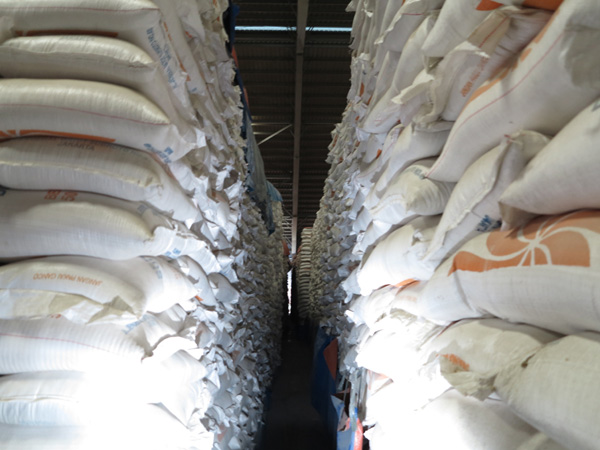WB says PH’s 4Ps cash aid, which some senators want to replace with rice, worth emulating

The conditional cash transfers being given to poor families under the 12-year-old Pantawid Pamilyang Pilipino Program (4Ps) have helped reduce poverty and income inequality in the Philippines and deserved to be emulated across the government’s development programs, the Washington-based World Bank said.
In a report, the World Bank said 4Ps had maintained “good targeting accuracy, progressivity and cost efficiency in delivering assistance to the poor.”
A proposal in the Philippine Senate is gaining ground, though, to replace cash being given through 4Ps with rice.
Analysis of 4Ps “confirm that it contributes to reducing national poverty, though its targeting performance has declined over time,” said the World Bank report, “Pantawid Pamilya 2017 Assessment: An Update of the Philippine Conditional Cash Transfer’s Implementation Performance.”
According to the World Bank, 4Ps slashed nationwide poverty rate by up to 1.5 percentage points between 2012 and 2015.
The program also reduced income inequality by 0.5-0.6 ppt during the same period, said the World Bank report released last September.
“Other programs in the Philippines must learn from the experience of (4Ps) in terms of design, evaluation and impact,” said the WB.
If the Philippine government were to continue being effective in anti-poverty programs, the WB said “it must invest in putting in place systems for objective monitoring and evaluation.”
It said there was also a need for “accountability mechanisms” used in the cash aid program.
The WB said the Philippine experience with 4Ps had taught a lesson—“impactful programs evolve to maintain relevance and generate consensus for continuity even in time of political transitions.”
4Ps was started during the Arroyo administration, and implemented by the two succeeding administrations of Benigno Aquino III and Rodrigo Duterte.
Last April, President Duterte signed into law Republic Act (RA) No. 11310, which made 4Ps a permanent feature of government anti-poverty plans and provided more subsidies.
To further support 4Ps, the WB in June approved a fresh $300-million loan as additional financing to cover 8.7 million Filipino children from 4.2 million families.
The WB also recommended adjustments to sustain 4Ps benefits.
It said a stop to the program expansion and the use of “outdated targeting system” had led to “lower coverage levels and incidence rates among the poor.”
“The inability to adjust benefit levels with inflation has resulted in lower generosity of benefits,” the WB said./tsb